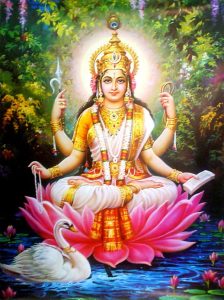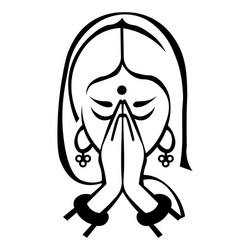In My Meditation Today: In truth, suicide is not just the ending of one’s physical life. Giving up on our dreams and settling for a safe but mediocre life, even unhappy, is not that different. That is still a slow but sure killing of your spirit. Perhaps that is the worst death?
The Grand Story of the Divine Mother is told in three parts. Each part describes a battle between good and evil, and most often, the story is interpreted as the forces of good and evil external to us.
However, a more useful interpretation is that it represents the battle between my basest instincts and my highest potential. The battles are bloody and gory because a struggle to live from your highest potential is brutal, ugly, and metaphorically bloody and gory.
The eighth chapter of the myth is the third episode in the last section of the Grand Story of the Divine Mother.
This is the second post on this Chapter of the Myth. In the last post, we saw that Devi had called in reinforcements to fight the massive army that Shumbha & Nishumbha had sent out.
The seven goddesses with Devi are running roughshod over this vast army. Just as it seemed as if they were getting the upper hand, a powerful demon called Raktabija walked onto the battlefield.
Raktabija was a demon with a unique power. Every drop of his blood that fell to the earth created another fully grown demon who was as powerful as he was. As the different Goddesses began to attack him with their weapons, he bled, and hordes of cloned Raktabijas filled the battlefield. As the Gods saw this, they were filled with terror. The all-knowing Devi senses their terror and laughs. She summons Kali and says, “Chamunda, open your wide mouth and quickly drink up the blood from my weapons. Roam around the battlefield and devour the great demons sprung from Raktabija. So shall this demon, drained of blood, go to his destruction.” The strategy works in the battle, and Raktabija is vanquished. Traditional explanations of the allegory say that Raktabija represents insatiable desire. According to many conventional interpretations, desire is wrong and never satisfied; therefore, the place to aspire is to be without desire. I find that place deathly boring. Who wants to live without desire? That is equivalent to living without dreams and hopes.
A much better description of Raktabija and his hordes is the unstoppable power of the mind to take you into a downward spiral of thought. The spiral is particularly noticeable when you are in a negative spiral. It is equally valid when you are busy living in the future. In both cases, our minds and thoughts are taking us away from the only moment that matters – the present moment. Thus, the role of Raktabija is to create a web of ideas that make you feel unsure of yourself; take you away from the present moment. It makes you lose trust; that is what the fear of the Devas represents. Here, they have the Goddess who has fought so many successful battles for them. The Devi they prayed to for support, and at the first sight of trouble, they began to imagine a future with a defeated Devi.
Raktabija represents our mind, which creates that loss of faith, and wants to intervene after we have said we are surrendering the outcome of a crisis to God.
Devi, on the other hand, is not bothered either by Raktabija or the loss of trust of the Devas.
She knows her power. She is committed. If you call on her, she will be there as a thought, a person in your life, a book you find. She will not give up on you even when you want to give up on yourself. Remember that this support is available to you every time you are tempted to give up on yourself or your dreams.

